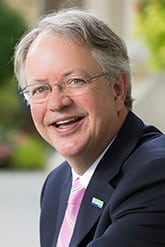Mayor Tecklenburg presents plan for monuments to Commission on History
August 31, 2017August 30th, Mayor John J. Tecklenburg sent the following letter to the chair of the city of Charleston’s Commission on History:
Dear Chairman Greene:
Earlier this year, my wife Sandy and I had the pleasure of giving tours of Marion Square to out-of-state designers who were finalists to design a proposed memorial at Mother Emanuel AME Church. It became apparent to me during those tours that a more complete telling of the history of Marion Square was needed, to put into historical context the statue of John C. Calhoun and the memorial to Wade Hampton, along with the pivotal history of this special place in our City. I feel that adding to the historical story enables us to more fully understand and learn from our past. This approach is also a practical reality as the state legislature (by way of the Heritage Act) prohibits the removal of certain historical markers and artifacts without legislative approval. In addition to a review of Marion Square, I also would propose a broader review of memorials and historical markers throughout our historic city.
Understanding that any recommendations from the Commission will require approval of our City Council, I would like to make the following recommendations for your consideration and action:
- First, in regard to the John C. Calhoun statue in Marion Square, a plaque to be written by the History Commission (with public input) and approved by City Council. The approved plaque will be erected at the monument and will describe who Calhoun was and clearly elucidate his views on racism, slavery, and white supremacy.
- Further plaques and explanatory information to be written and erected at other relevant monuments (e.g., Wade Hampton, Defenders of Fort Sumter), public places, parks, or buildings as determined by the Commission and City Council.
- An online educational component to be created and posted on the City’s website to explain the historical significance of race, racism, slavery, and white supremacy with regard to city monuments, places, or buildings.
- Improved access and information to the Denmark Vesey monument, including wayfinding signage and internet information.
- The creation of a significant African American monument at White Point Gardens and/or Riley Waterfront Park as recommended by the Commission and approved by City Council, such as a monument to the First South Carolina Volunteers, escaped slaves from South Carolina who served—at the risk of being hanged—as Union soldiers.
- Consider the addition of other appropriate markers and memorials, particularly to the contributions of civil and human rights leaders of Charleston’s history.
I thank you for your service on the History Commission and for your consideration of these recommendations.














